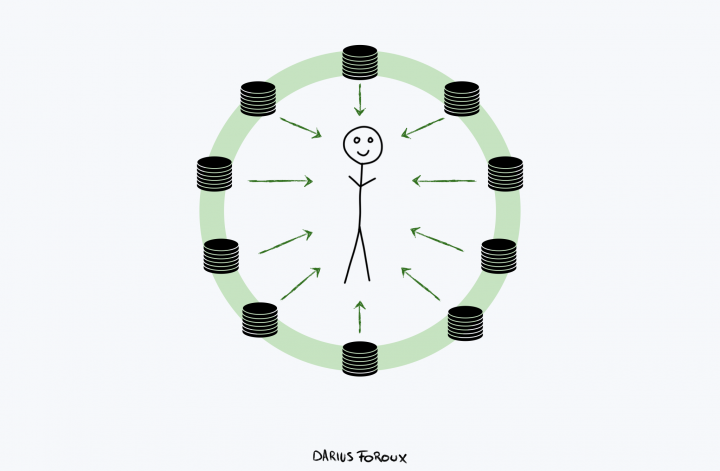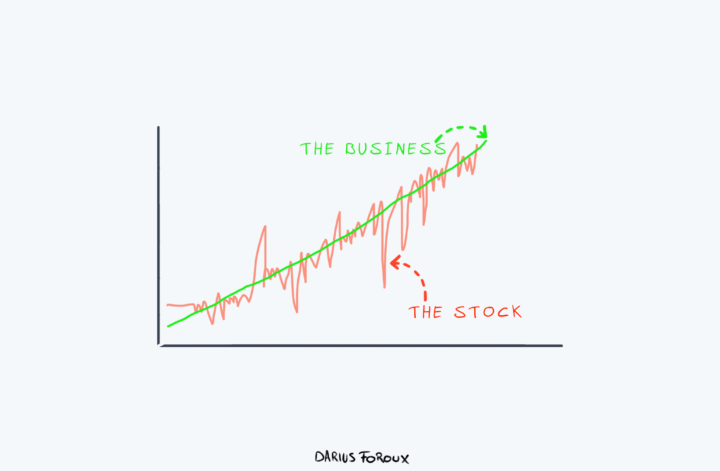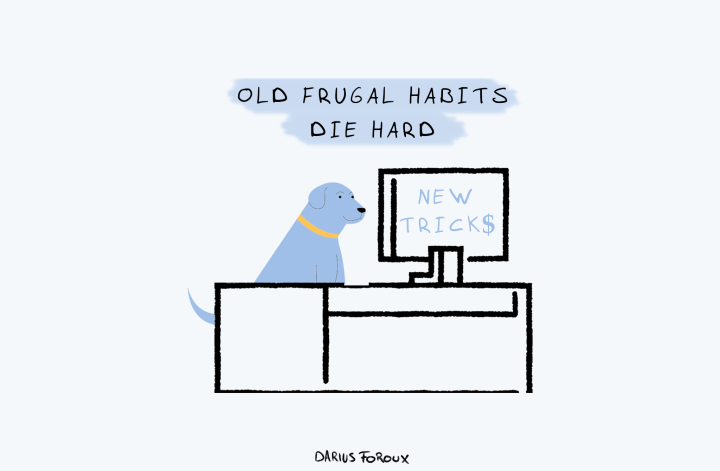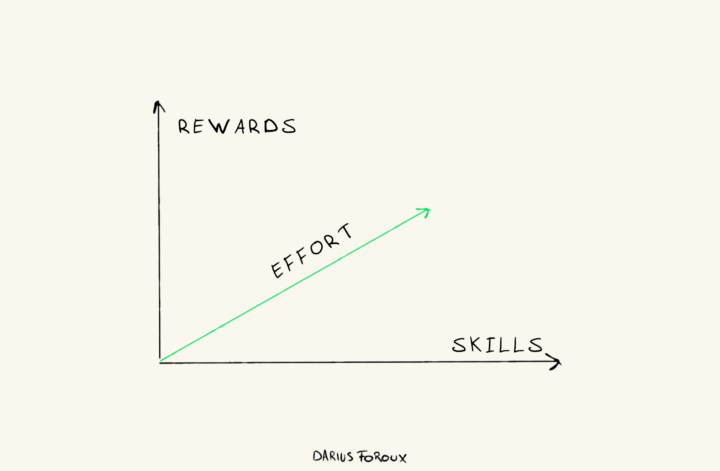The first thing I did to change my financial shape was to quit my bad money habits. At 28, I was walking around with $30K in student debt, no assets, and about $8K in savings to fall back on.
Three years after I got serious about wealth building, I was debt-free and was making six figures a year. One thing people never tell you when they talk about making money is that you can make all the money in the world, but if you’re bleeding money, you won’t get any wealthier.
Too many people are focused on getting ahead without understanding what’s holding them back. Or what got them in dire financial situations.
So to get in better financial shape, give up your destructive money habits first. That alone will help you to stop your money bucket from leaking. Here are 5 of those bad habits that I had to quit.
1. Mindless shopping
Most people have a consumer mentality. They always need to spend money to have a good time. If you’re getting bored and you think you need to buy something, go on a vacation, eat out, visit a concert, or anything else that requires money, it means you still have a consumer mentality.
It’s nothing to be ashamed about. Most of us grow up with this mentality. I’m no different. Almost everyone in my immediate family is a consumer.
And look, sometimes I still feel the pull to buy myself out of discomfort. I just want to browse the web and feel like spending money. That’s mindless shopping. And if you keep spending your money on things or experiences that you assume will make you happy, it will only empty your bank account.
To be in good financial shape, we need to give up our consumer mentality. Instead of relying on consumerism for our happiness, we need to rely on inner joy and practice more mindfulness.
2. Using a credit card as a loan
Credit cards are great and serve a purpose. In most countries, you need it to build a good credit score. But the problem with credit cards is that we think it’s a free loan.
“I can spend my money now and pay later.” Yes, with a 100% interest rate or something outrageous. I don’t even know what the limit of my credit card is because I just use it to pay for small purchases. And I immediately pay it off the next month so I don’t pay interest.
Here are several ways to get out of debt:
- Assess your financial health; see where your money is coming from and where it’s going;
- Negotiate lower interest rates with your bank/credit card provider;
- Make extra payments to your loans when more money is coming in. Don’t just spend it all!
- Live on a temporary budget when your debts are overwhelming.
- Cancel unnecessary memberships and spending habits.
3. Borrowing money for liabilities
I’m a big believer in the good old platitude, “live below your means.” But if we need to borrow money to buy a car or other consumer goods, what are we doing? We’re living above our means.
I know a guy who leased some kind of German sports car for three years. He told me it cost him about $3,500 a month including gas and insurance. That’s $126,000 in three years.
When he told me that a few years ago, he was quite apathetic about it. “I really enjoyed driving that car, but I can’t help to think that I probably could’ve bought a condo with that money.”
Don’t be that guy.
4. Spending time to save pennies
I used to spend hours online searching for deals on clothes or shoes. I even bought running shoes that were on sale instead of the ones that were actually good for my feet. Those shoes ended up injuring me.
But then, I read that Naval Ravikant doesn’t even bother returning items that are worth less than he values his time.
Naval believes everyone needs to put a dollar value on their time, and use that to make decisions. For example, if you value your time at $300 an hour, do you really want to spend an hour searching for the best deal on a shirt you want to buy?
5. Having one income stream
People who have one income stream usually live with a perpetually fearful state of mind and terrible money habits. They realize that their income is vulnerable. If they rely on only one website like YouTube or Medium for 90% to 100% of their income, they do anything to defend their income source.
It’s the same for people who have a job without much prospects. They’re afraid to lose their job, so they say yes to everything and let people walk over them at work. That’s how many people become bitter over time.
But you don’t have to do that. By investing in yourself and spending less time on entertainment and consumerism, you can build a more stable career.
You can build a side business, invest your money in real estate or dividend stocks, or work in a field with a lot of job prospects. When you have options, you feel more at ease.
Having multiple income streams is the most important money habit because it’s a different perspective. Most of us grow up with the mindset of a consumer and worker. You get a job, put your head down, do what they say from 9 – 5, and then you get paid so you can live in the evenings and weekends.
That doesn’t sound like a good deal to me. If we control our money, we take control over the practical aspect of our lives. Sure, it’s not the answer to everything, but it sure will give you more freedom. The price is that you need to give up certain money habits, but is that really so bad?




